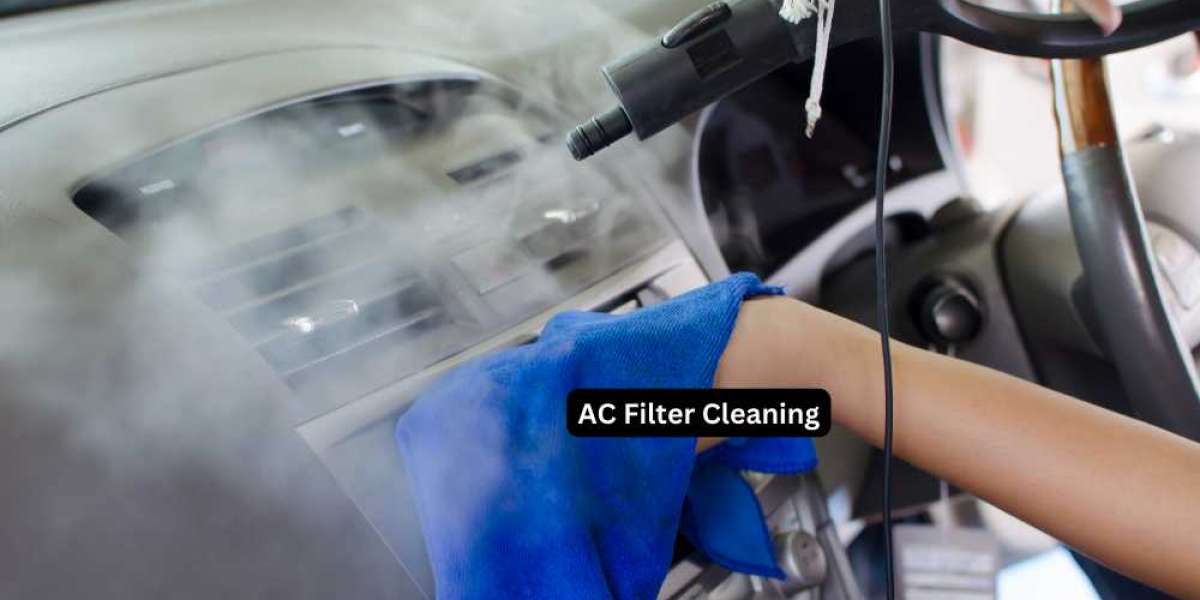Air conditioning (AC) systems play a crucial role in maintaining indoor comfort, especially during hot and humid weather. However, over time, these systems can accumulate dust, dirt, and other contaminants, which affect their efficiency and performance. Regular AC filter cleaning is essential to ensure that your system runs smoothly, provides clean air, and operates at its optimal efficiency. This guide discusses the importance of AC filter cleaning, the process involved, signs indicating a dirty filter, and the benefits it offers.
Table of Contents
Why Is AC Filter Cleaning Important?
- Improves Air Quality: The AC filter acts as a barrier, trapping dust, pollen, allergens, and other pollutants from the air. A dirty filter becomes clogged and reduces its ability to capture these particles, leading to poor indoor air quality. Regular cleaning helps remove contaminants, ensuring the air circulated is clean and healthy.
- Increases Energy Efficiency: A dirty or clogged filter forces the AC system to work harder to pull in air, leading to higher energy consumption. This extra effort reduces the efficiency of the system and results in increased energy bills. Cleaning or replacing filters regularly reduces strain on the system, enhancing its efficiency and reducing operational costs.
- Extends System Lifespan: AC systems are expensive investments, and maintaining them properly ensures they function optimally for years. A clogged filter can cause additional strain on the system, leading to wear and tear on components like the fan motor and compressor. Regular filter cleaning prevents such strain, helping extend the life of your AC system.
- Prevents System Breakdowns: Dirty filters reduce airflow, which can lead to overheating of the system’s components. This strain increases the likelihood of system malfunctions and breakdowns. Cleaning the filters ensures smooth operation, reducing the chances of expensive repairs.
Signs That Indicate a Dirty AC Filter
- Reduced Airflow: One of the first signs of a dirty filter is reduced airflow from the AC vents. If you notice weaker air blowing out, it’s likely the filter is clogged and needs cleaning or replacement.
- Increased Energy Bills: A dirty filter forces your AC system to consume more energy, leading to higher utility bills. If you observe a sudden spike in energy costs, the filter could be the culprit.
- Poor Air Quality: If you or your family members are experiencing more dust, allergens, or respiratory issues like coughing or sneezing, it could be due to a dirty filter. Clogged filters fail to capture airborne particles, impacting indoor air quality.
- Frequent System Cycling: A dirty filter causes the AC system to cycle more frequently to maintain the desired temperature. This frequent on-off cycling puts unnecessary strain on the system, potentially leading to mechanical issues.
How to Clean AC Filters
- Turn Off the AC System: Before you begin, ensure that your AC unit is turned off to avoid any potential safety hazards.
- Locate the Filter: Filters are usually located near the AC unit or in the air handler. Consult the user manual if you’re unsure where to find it.
- Remove the Filter: Take out the filter gently. Be careful not to damage the frame or any surrounding components.
- Clean the Filter:
- For washable filters: Use a vacuum cleaner to remove loose dust and dirt. Rinse the filter under cool water to remove stubborn debris. Let it dry completely before reinstalling.
- For disposable filters: Replace the filter with a new one of the same size and type.
- Check and Clean the Unit: While the filter is removed, inspect the AC unit for any visible dirt, debris, or mold. Clean the unit using a soft cloth and mild cleaning solution.
- Reinstall the Filter: Once cleaned or replaced, reinstall the filter carefully and ensure it is seated correctly.
Benefits of Regular AC Filter Cleaning
- Enhanced Comfort: Clean filters ensure consistent airflow and cooling, improving indoor comfort, especially in hotter seasons.
- Lower Energy Bills: By maintaining clean filters, the AC system uses less energy to operate, leading to reduced energy consumption and lower utility bills.
- Better System Performance: Regular cleaning prevents strain on the system, keeping all components, including the fan and compressor, functioning efficiently.
- Improved Indoor Air Quality: Cleaner filters capture dust, allergens, and pollutants, reducing the risk of respiratory issues and providing healthier indoor air.
- Increased System Lifespan: A well-maintained AC system, with clean filters, operates optimally and experiences less wear and tear, extending the life of the unit.
Conclusion
AC filter cleaning is a simple yet vital maintenance task that significantly impacts your AC system’s performance, energy efficiency, and indoor air quality. By understanding the signs of a dirty filter and following the recommended cleaning process, you can ensure your AC unit operates efficiently, saving energy, reducing costs, and improving your indoor comfort. Incorporating regular filter maintenance into your routine helps protect your investment and contributes to a healthier, more comfortable living environment.






